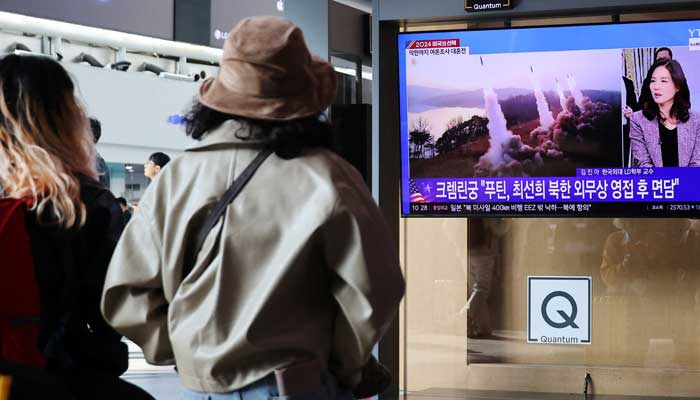
- These allegations come a week after North Korea launched an intercontinental ballistic missile.
- Dozens of aircraft experienced “some operational disturbances.”
- Tensions on the peninsula have reached their highest levels in years.
SEOUL: North Korea launched GPS jamming attacks on Friday and Saturday, an operation that affected several ships and dozens of civilian aircraft in South Korea, the South Korean military said.
The jamming allegations come about a week after North Korea tested what it said was its most advanced and powerful solid-fueled intercontinental ballistic missile, the first such launch since it was accused of sending troops to help Russia fight Ukraine.
The South launched a ballistic missile toward the sea on Friday in a show of force aimed at showing its determination to respond to “any North Korean provocations.”
“North Korea conducted GPS jamming provocations in Haeju and Kaesong yesterday and today (November 8-9),” Seoul’s Joint Chiefs of Staff said in a statement on Saturday, adding that several ships and dozens of civilian aircraft experienced “some operational disruptions.” ” a result.
The army warned ships and aircraft operating in the Yellow Sea against such attacks.
“We strongly urge North Korea to immediately stop its GPS provocations, and warn that it will bear responsibility for any subsequent problems arising from it,” they said in the statement.
Tensions on the peninsula have reached their highest levels in years, with North Korea launching a series of ballistic missiles in violation of UN sanctions.
It has also been bombarding the South with balloons carrying garbage since May, in what it says is retaliation for anti-Pyongyang propaganda messages sent to the North by activists.
North Korea has become one of the most important supporters of the Russian offensive in Ukraine.
Seoul and the West have long accused Pyongyang of supplying Moscow with artillery shells and missiles for use in Ukraine.
The latest accusations, based on intelligence reports, indicate that North Korea has deployed about 10,000 troops in Russia, indicating deeper involvement in the conflict and sparking protests in Seoul, Kiev and Western capitals.
South Korea, a major arms exporter, has a long-standing policy of not supplying weapons to countries experiencing conflict.
But President Yoon Suk-yeol said this week that Seoul now does not rule out the possibility of directly providing weapons to Ukraine, given Pyongyang’s military support for Moscow.
The presidential office in Seoul said on Friday that cyber attacks launched by pro-Russian hacking groups against South Korea have increased after North Korea sent troops to participate in the Russian war in Ukraine.
